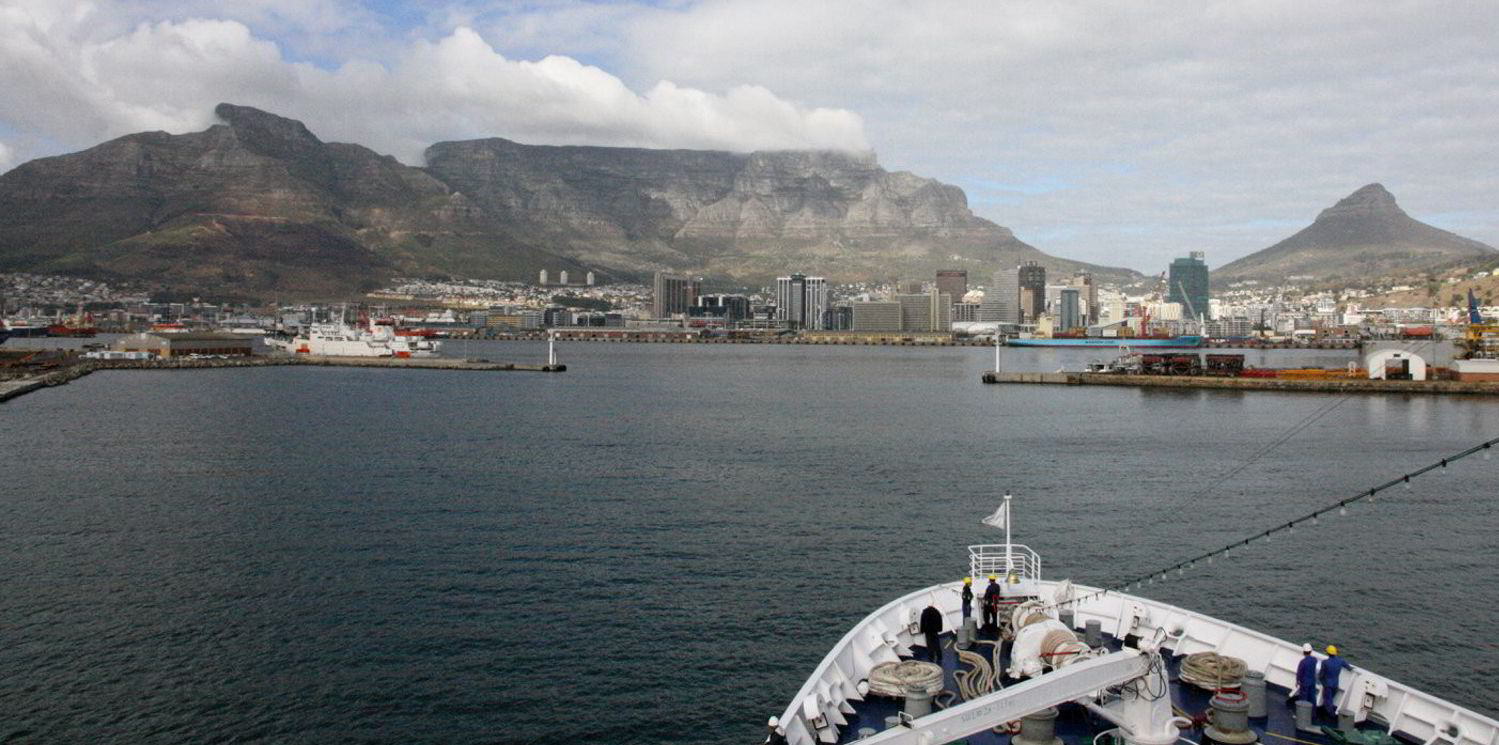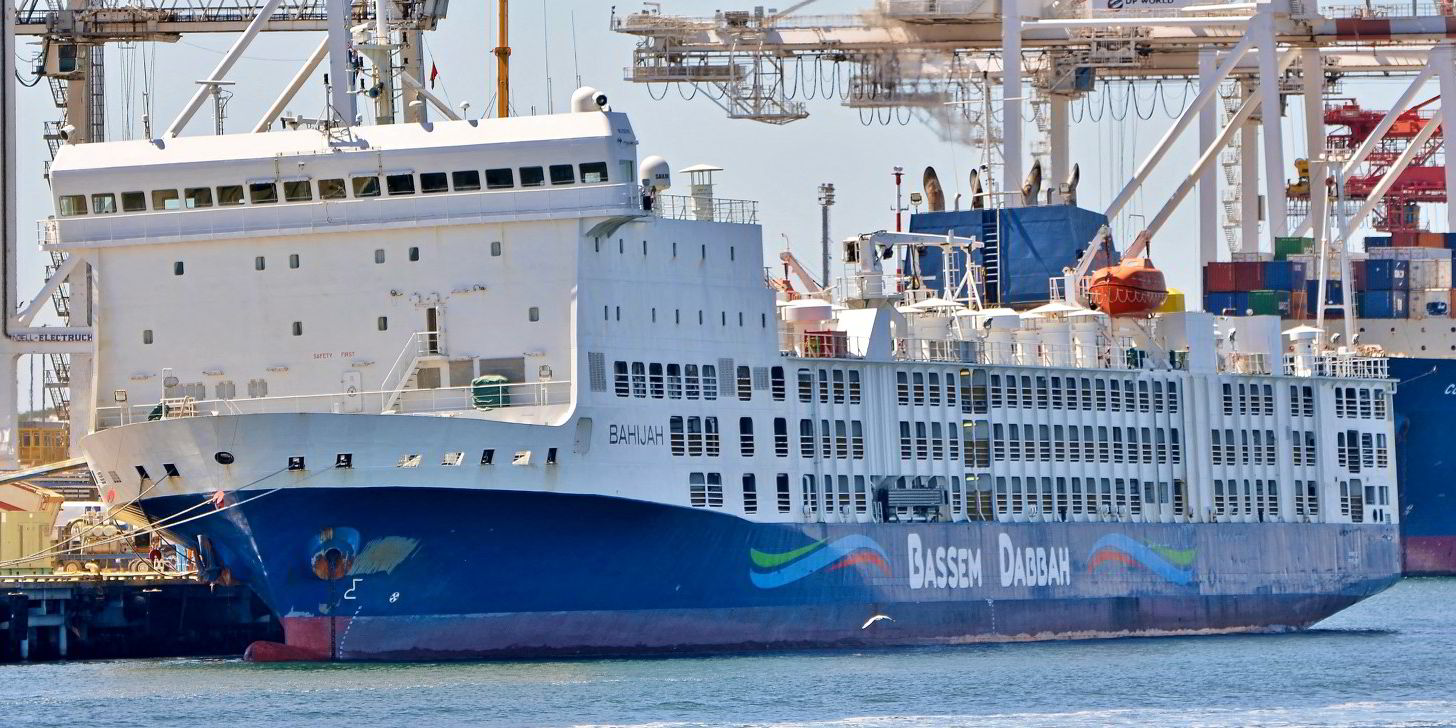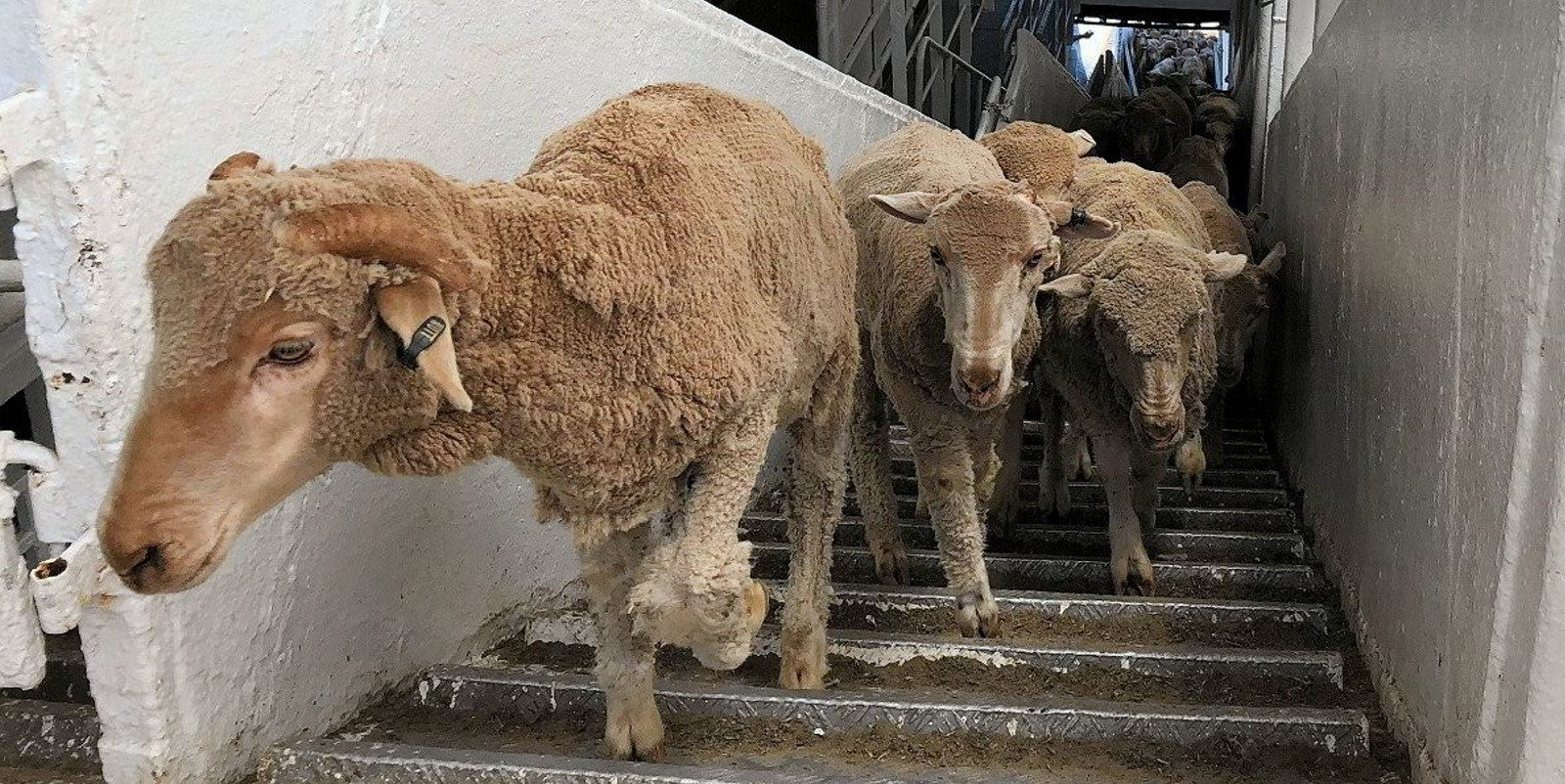Municipal authorities in Cape Town were put on alert on Monday after residents of South Africa’s prime tourist destination began complaining about an awful stench.
A strong smell of sewage blanketed the central business district and nearby residential neighbourhoods.
Sanitation workers sent to investigate the cause of the noxious smell tracked it down to a livestock carrier docked in the port with a load of cattle heading from Brazil to the Middle East.
Citizen sleuths identified the ship as the 36,000-gt Al Kuwait (built 2016), owned by Kuwait City-based Livestock Transport & Trading. Vessel tracking data confirmed the ship’s presence in the port on Tuesday morning.
City of Cape Town water & sanitation mayoral committee member Dr Zahid Badroodien told concerned residents in a social media post that the ship had arrived on Sunday evening and was due to depart at 9pm local time on Tuesday.
Fortunately for the residents of Cape Town, meteorological reports indicate that the winds from the northeast wafting the smell of the Al Kuwait over the city will gradually change to the southwest on Tuesday.
This should blow the smell away from the city centre and two cruise ships that docked in its port on Tuesday morning.
Livestock carriers are not common callers in Cape Town, although they may be seen more often as part of the armada of vessels diverting away from the Red Sea to avoid the risk of Houthi attacks on shipping.
In January, the Australian government ordered the Bassem Dabbah Shipping-controlled 12,900-gt livestock carrier Bahijah (built 2010) to return to Fremantle to discharge more than 15,000 cattle and sheep after it diverted to South Africa instead of heading to Aqaba in Jordan.
The move came after Australian animal welfare groups raised a ruckus, claiming that the animals would be subjected to intolerable conditions over such an extended voyage in the sweltering summer heat.
The Bahijah subsequently returned to Fremantle in Western Australia, where the animals were disembarked on 15 February.
Australia’s Department of Agriculture reported that four cattle and 64 sheep died during the six-week voyage. A further seven cattle and six sheep died upon returning to land.(Copyright)





